 Petzlover
Petzlover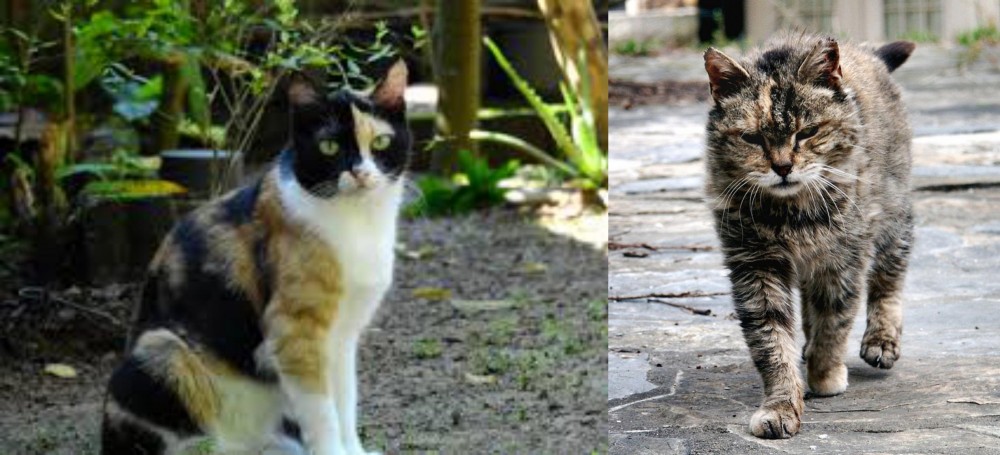 Calico is originated from Egypt but Farm Cat is originated from United States. Both Calico and Farm Cat are having almost same weight. Calico may live 4 years less than Farm Cat. Both Calico and Farm Cat has same litter size. Calico requires Low Maintenance. But Farm Cat requires Moderate Maintenance
Calico is originated from Egypt but Farm Cat is originated from United States. Both Calico and Farm Cat are having almost same weight. Calico may live 4 years less than Farm Cat. Both Calico and Farm Cat has same litter size. Calico requires Low Maintenance. But Farm Cat requires Moderate Maintenance
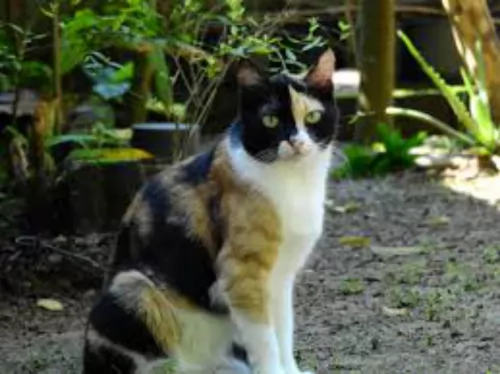 Nobody can say with certainty where Calico cats originate from, but it is thought they they hail from Egypt, and that they later came to port cities in Spain, Italy and France.
Nobody can say with certainty where Calico cats originate from, but it is thought they they hail from Egypt, and that they later came to port cities in Spain, Italy and France.
Today these cats are found all over the world. Wherever these cats come from, they are 99.9% female and this is because of the cat’s unique chromosomal makeup. Most of the calico or tortoiseshell male cats are because of the chromosome abnormality.
The weird aspect with these amazing cats is because of their unique genetic makeup, and also because of the fact that the males are born sterile, these cats can’t be bred and they can emerge in different litters.
Since 2001 this cat has been Maryland's state cat. An interesting fact is that the Calico became the official cat of the state of Maryland because of its amazing colors of its fur which happen to be fairly similar to that of the Baltimore Oriole, the state bird.
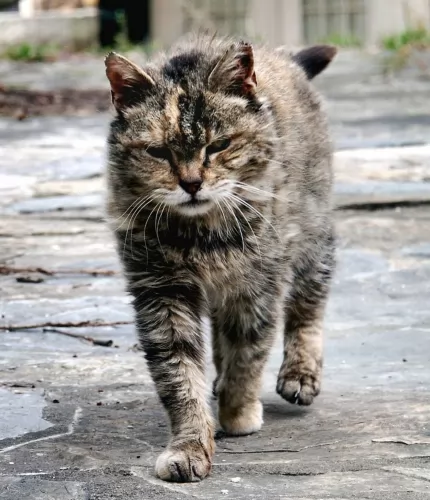 Known also as the Barn Cat, this domestic cat is of a mixed breed. The very name ‘farm cat’ is referring to a general kind of cat that lives in an almost wild state on farms and agricultural properties.
Known also as the Barn Cat, this domestic cat is of a mixed breed. The very name ‘farm cat’ is referring to a general kind of cat that lives in an almost wild state on farms and agricultural properties.
Possibly, their role in keeping rodents at bay was how they came about – domesticated to keep rodents away from grain crops.
When you do research you find that there is archeological evidence to suggests that these farm cats have been around since about 7500 BC. Most barn cats fall under the domestic shorthair or domestic longhair categories.
These cats live in a variety of conditions and some of them get their food solely from the rodents they catch. Others are tame with access to supplemental cat food as well as veterinary care.
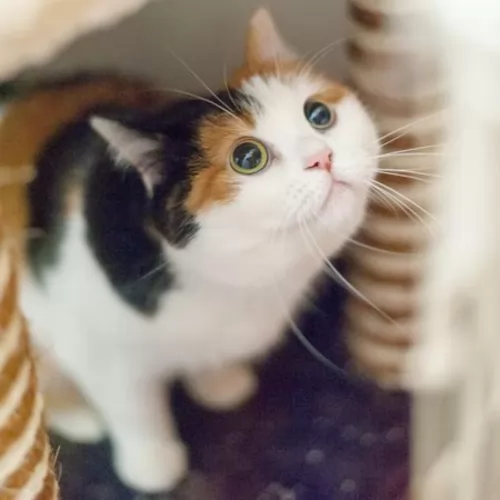 Calico cats are known for their jaunty tri-colored coats with color such as white, black and orange. In fact, to be known as a Calico cat, these 3 colors need to be present, Calico isn’t a breed of cat as such, but is actually referring to the cat’s color variations.
Calico cats are known for their jaunty tri-colored coats with color such as white, black and orange. In fact, to be known as a Calico cat, these 3 colors need to be present, Calico isn’t a breed of cat as such, but is actually referring to the cat’s color variations.
Some of the most distinctive breeds of cars such a the Cornish Rex and Persians have these calico coats. One odd spec with these cats is that nearly all calico cats are female and this is because of the chromosomal makeup.
Size, coat texture, shade of coat, coat length and ear shapes can all vary with the type of calico cats you get so their weight can be anything from 3 to 7kg.
As mentioned, Calico cats aren’t a specific breed, and that is why it is actually difficult to describe the personality of a calico cat.
You’ll find certain calico cat owners describing their cat’s behavior but you won’t find any particular scientific studies of the cat’s personality. You could have a calm cat, one that is laid-back, a very vocal cat or a very active cat. In other words, these cats can be quiet, calm, excitable, friendly, shy, or mellow – their personality is formed from the way they are brought up and socialized.
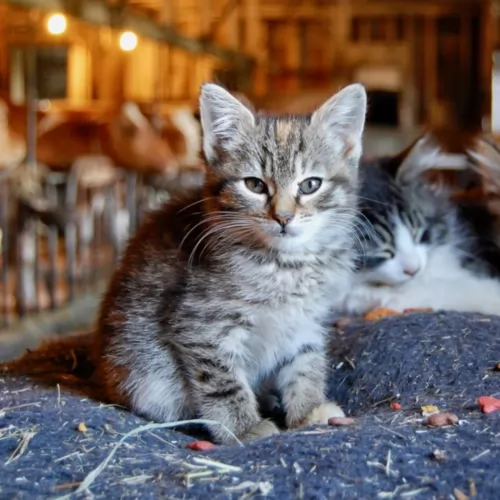 Farms cats are also members of domestic cats but it’s just that they are usually not socialized and they run away from people.
Farms cats are also members of domestic cats but it’s just that they are usually not socialized and they run away from people.
Farm cats have different histories and there is really no one-size-fits-all description of them.
They can weigh anything from 2 to 8kg. They can live to be anything between 10 and 20 years of age. Some of them are large, some small, some are solid colored while others are bi-colored and patterned. Their coats differ too and you can find short- and long-haired varieties among your farm cats
Their eyes and ears will also be in any shades and sizes and these cats are usually not spayed or neutered and can produce kittens that nobody is sure how they’ll turn out.
If you were to stumble across a farm cat born of unknown parents, there is no knowing what the small feline will behave like. Socialization and lifestyle play a big role in determining how a kitten will turn out but farm cats left to their own devices could be quiet, aggressive, loving, naughty, reticent, reserved, playful, lazy, shy or nervous.
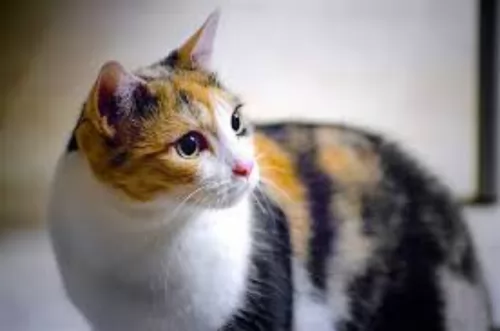 The Calico is such an amazing type of cat and because it comes from so many cat breeds, the personality will vary, although having said that, there are a few characteristics that seem to be specifically attributed to the Calico cat.
The Calico is such an amazing type of cat and because it comes from so many cat breeds, the personality will vary, although having said that, there are a few characteristics that seem to be specifically attributed to the Calico cat.
One thing is for sure, these are intelligent, sweet, appealing, warm-hearted, loving cats that are good with children too. Perhaps in keeping with the quirky, jaunty coat, there is some quirkiness in the personality too, but that is precisely what makes these amazing cats the interesting characters they are.
To add to that, when you do research, you find that some have acted in bravey and saved their humans from harm in one way or the other.
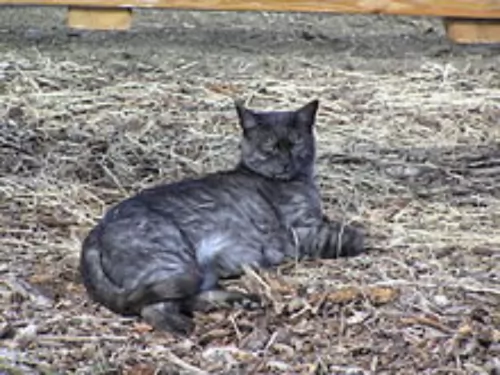 Farm cats are such wonderful animals – they just need a good chance in life like other domestic cats.
Farm cats are such wonderful animals – they just need a good chance in life like other domestic cats.
Many of them have had a hard life and it can be marvelous to open your home and heart to one or two of them and see the pleasure they bring.
They’re full of character and if you provide them with good food and a warm bed and promise to love them, you’ll no doubt be starting a solid and meaningful friendship that can enhance your life.
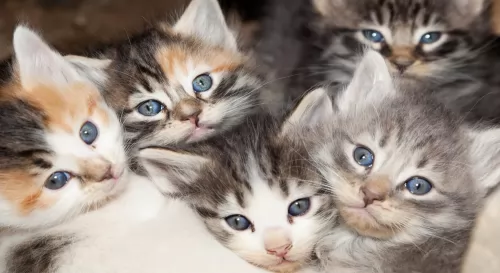 The lifespan of the Calico cat be anything really and if you provide your calico with a wonderful home it will be able to reach 15 years of age.
The lifespan of the Calico cat be anything really and if you provide your calico with a wonderful home it will be able to reach 15 years of age.
Sometimes Klinefelteris Syndrome is a threat with this cat as a result of the XXY chromosomes. Their health is impacted because the disease can cause problems such as increased body fat and reduced bone mineral content.
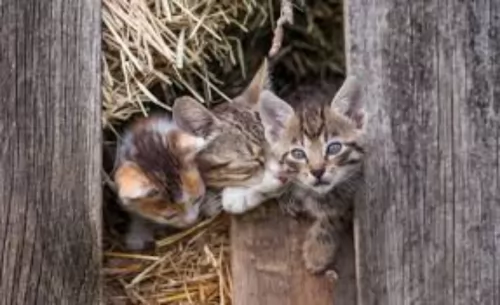 Farm cats left to fend for themselves can suffer from a host of illnesses. Eye infections are one. The cause of these eye infections is usually a virus, of which herpes, chlamydia, and Calicivirus are the most common.
Farm cats left to fend for themselves can suffer from a host of illnesses. Eye infections are one. The cause of these eye infections is usually a virus, of which herpes, chlamydia, and Calicivirus are the most common.
Your vet will certainly prescribe you some antibiotics for your kitten to help against secondary infections.
Check your farm kitten over as he is likely to have a nose full of snot as well and may even be sneezing. Take the kitten to the vet who can give him a good once-over and put him on the road to recovery.
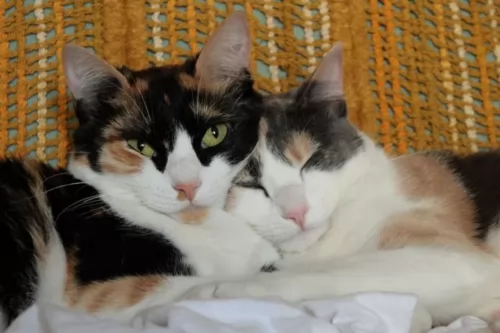 Gently brush the Calico’s fur from time to time to ensure the jaunty colored coat is always shiny and healthy. It helps with the removal of dead hair as well and the cat enjoys the attention.
Gently brush the Calico’s fur from time to time to ensure the jaunty colored coat is always shiny and healthy. It helps with the removal of dead hair as well and the cat enjoys the attention.
Every cat requires vaccines to prevent him from getting the deadly cat viruses there are, and to keep the cat free from parasites.
If there are any warning signs that there’s something wrong with your Calico, get him to the vet immediately.
Your Calico kitten will need to receive 3 meals a day. As your cat matures, two smaller meals a day will be good for your cat. You’ll find both canned- and dry packaged foods and your cat will let you know which one he prefers.
Your adorable Calico may beg for treats in between but as a responsible pet owner, make sure you don’t allow your Calico to overeat as obesity brings its own set of health issues.
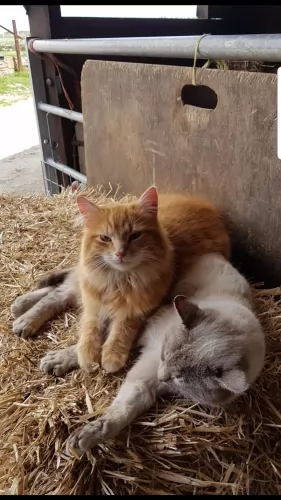 Barn cats or farm cats are not likely to have been neutered or spayed and they are just adding to the overpopulation of farm cats that can become feral cats.
Barn cats or farm cats are not likely to have been neutered or spayed and they are just adding to the overpopulation of farm cats that can become feral cats.
The average fertile cat can produce three litters every year, and with as many as 6 kittens in a litter, you can imagine how a small colony of cats can get out of control.
Sometimes cat rescue programs do a steri-drive and spay and neuter cats like this to curb the numbers. Of course, spaying and neutering can prevent many diseases as well.
If you have farm cats that have been spayed or neutered, provide them with good food and water. You can put out wet, canned cat food or dry kibble – they’ll be so pleased as most times these cats don’t even know where their next meal will come from.
You see them drinking out of puddles of water. Unfortunately, these pools are often filled with contaminants and this can also make the cats sick.
Every cat just wants a soft, warm place to sleep, and if you can, provide some warm dry hay for these farm cats. Even a cardboard box can be a haven for a cat that has never known a bed.
If you have managed to catch a farm cat kitten and you want to offer it a home, make sure to start off with veterinary care and vaccines.